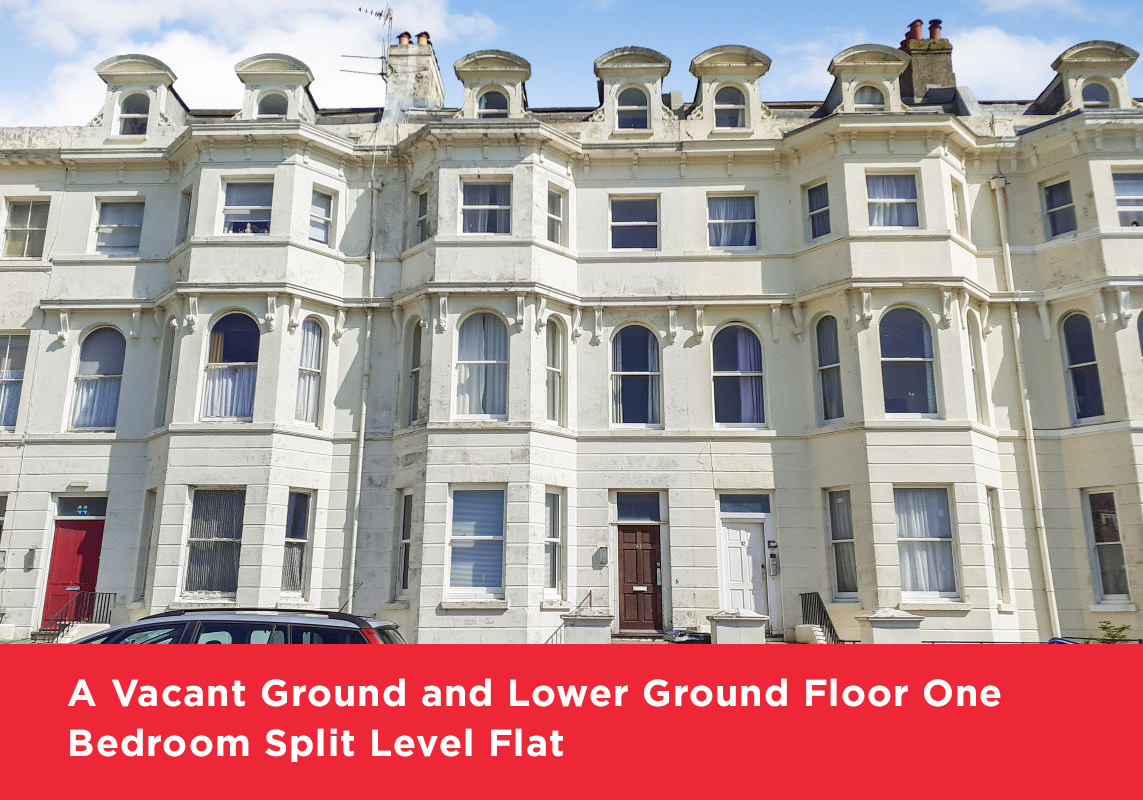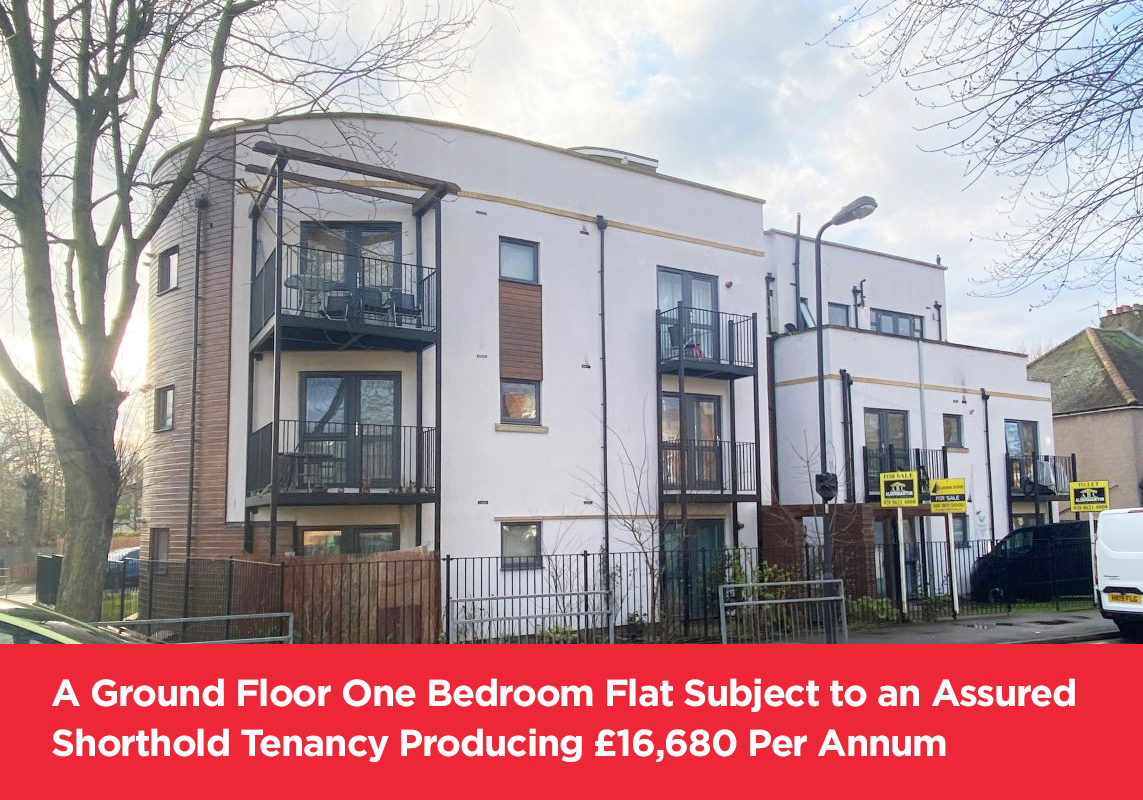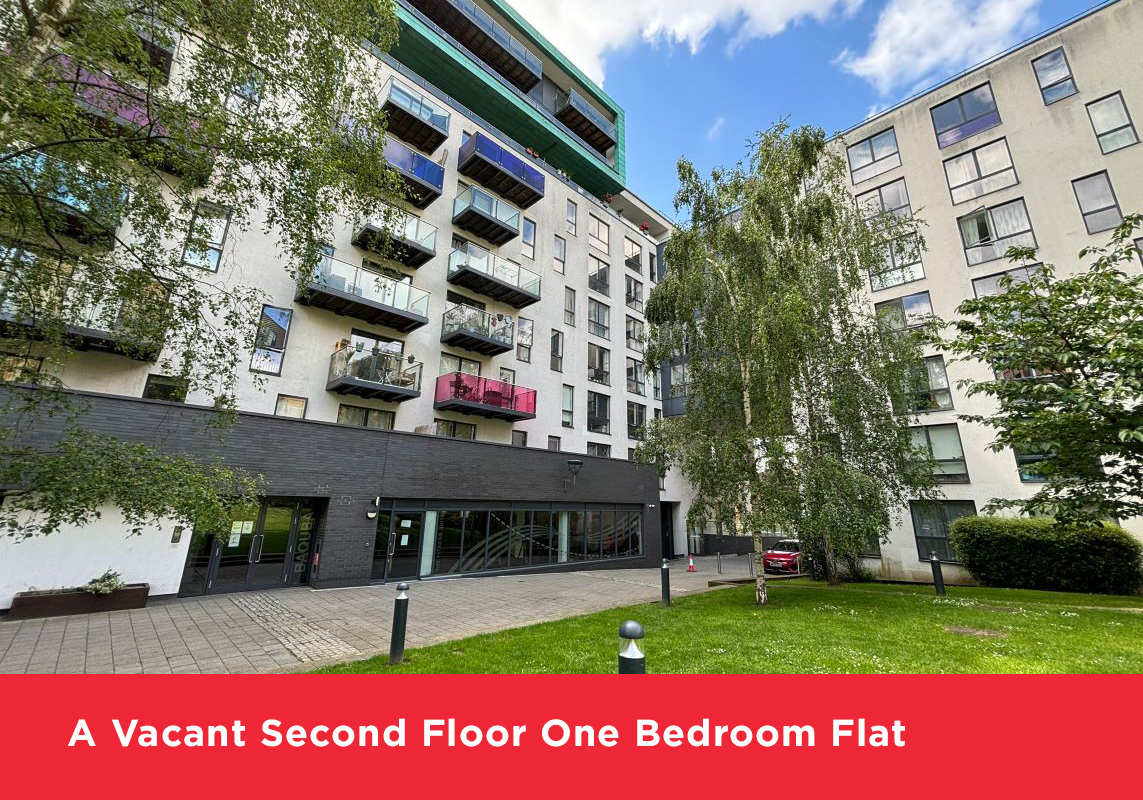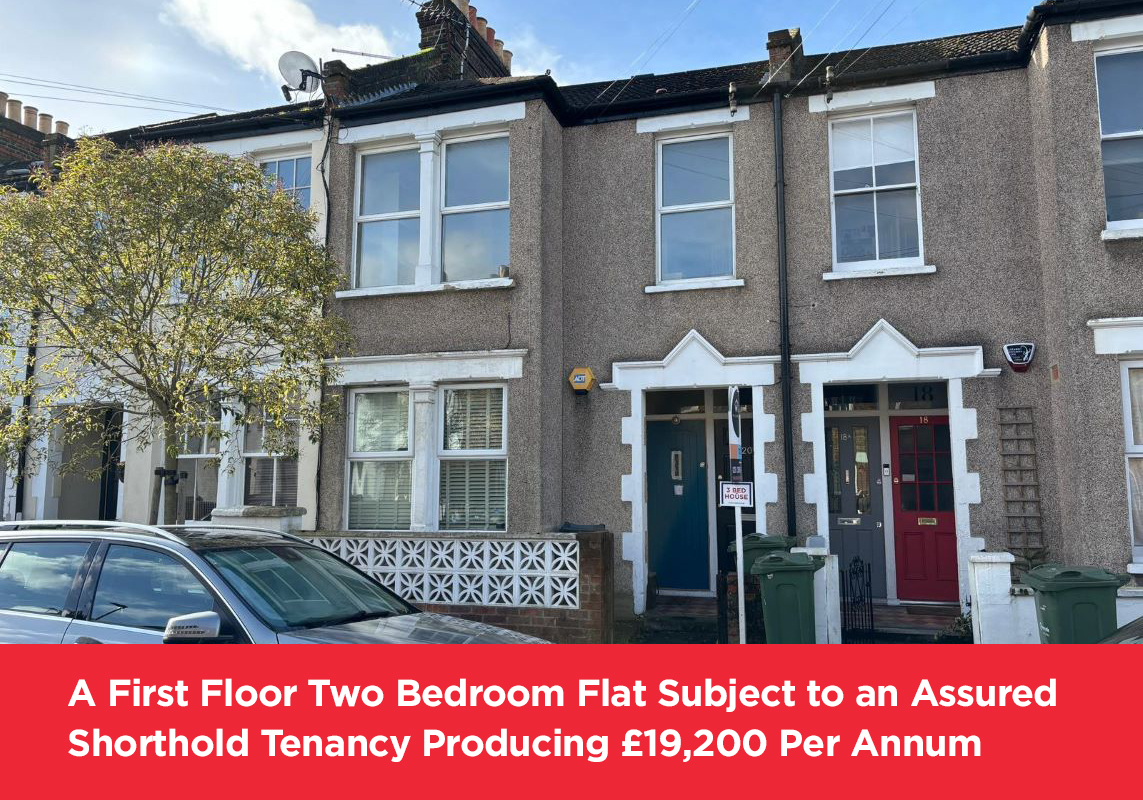
Updated: Mar 26th, 2025
Vacant or tenanted properties?
Vacant or tenanted properties: Which is the better option for landlords?
Investing in buy-to-let property can be financially rewarding. At our auctions, you can choose to buy vacant or tenanted property.
Each property type will be better suited to property investors with different circumstances and intentions. The optimal choice will ultimately depend on the investor’s goals, financial situation and market conditions.
Here, we investigate the pros and cons of vacant and tenanted properties, helping you determine the best option for you right now.

Advantages of vacant properties
A vacant property offers an immediate opportunity for renovation and customisation, such as this four-bedroom mid-terrace house in Luton. With no tenants, landlords can start any necessary upgrades and customise the property to meet market demands and maximise its value and rental income. This could include converting the property into self-contained flats or developing it into an HMO (Homes of Multiple Occupations). As the investor, I also have unrestricted access to the property, which can be crucial for extensive refurbishments or improvements that may disrupt tenants.
Vacant properties may attract fewer bidders than tenanted ones, so buying this property could lead to a better bidding price. A lack of tenants also makes inspecting the property more accessible, which helps reduce the risk of hidden issues becoming costly later on.
Vacant properties also provide buyers with flexibility. Purchasers can move in, rent the property immediately, or flip it quickly. Such flexibility can be appealing, particularly for diversifying investment strategies.
Disadvantages of vacant properties
A lack of tenants means an initial lack of income generated by the property. With no rental income to offset the costs of mortgage payments, property taxes, insurance and maintenance, the holding costs can become burdensome and the burden increases the longer the property remains vacant. Finding suitable tenants can take time, increasing financial pressure.
Also, any property renovations or improvements must be funded upfront, which can be a substantial initial outlay and thus prohibitive for investors with limited capital.

Advantages of tenanted properties
You will receive immediate rental income with a tenanted property, which will help cover mortgage payments, taxes and other expenses from day one. Such readily available cash flow can make the investment more sustainable and less risky.
The purchased property comes with proof of rentability, with the existing tenants demonstrating that the property can attract tenants. Lenders may also view a tenanted property more favourably because it presents a lower risk, given the immediate income stream.
Disadvantages of tenanted properties
There is the potential to inherit problems with tenanted properties. There could be issues such as late payments and property damage or disputes and addressing these problems can be time-consuming and costly. You will also be bound by the existing lease terms, which could limit your ability to increase rent or make necessary changes to the property.
Having tenants in place means you have limited access to the property, making it difficult to carry out renovations or inspections without causing significant disruption. Plus, if you should find yourself with problematic tenants, then the eviction process can be lengthy and legally complex, with the potential for prolonged periods of reduced income and increased stress.
Also, it is worth considering the various challenges of property management, as tenanted property comes with immediate and ongoing responsibilities. There will be tenant and maintenance issues, so ensure you are legally compliant. This is fine for landlords who like a hands-on investment but can be overwhelming for those who prefer the hands-off approach.
So, do you choose a vacant or tenanted property?
As highlighted, choosing between vacant and tenanted properties ultimately depends on an individual’s objectives and circumstances. Vacant properties are ideal when a landlord wants to add value through renovations, has the financial buffer to manage holding costs and wants flexibility.

If you are a landlord seeking immediate rental income, proof of rentability and potentially more accessible financing terms, a tenanted property is the way to go. Just be aware of the tenant and property management challenges and the inherited lease terms! Property Investors and Landlords should evaluate their financial situation and market conditions and consider their personal preferences before deciding which option best aligns with their investment goals. Both property types can be successful investments but cater to different investor needs and risk tolerances.

Auction House London prides itself on having local knowledge of vacant and tenanted properties. If you have questions about buying such property, please get in touch with our team of property auction professionals. If you’re looking for a buy-to-let property at an auction, browse through the lots listed in our forthcoming auction. Or, if you want to sell property, why not see how much it could be worth in an auction with a free valuation by Auction House London?

Andrew Binstock
Andrew is widely considered to be one of the best auctioneers in the UK with his energetic and passionate style combined with his ability to entertain the audience and his refusal to bring the gavel down until the very last pound has been extracted.
